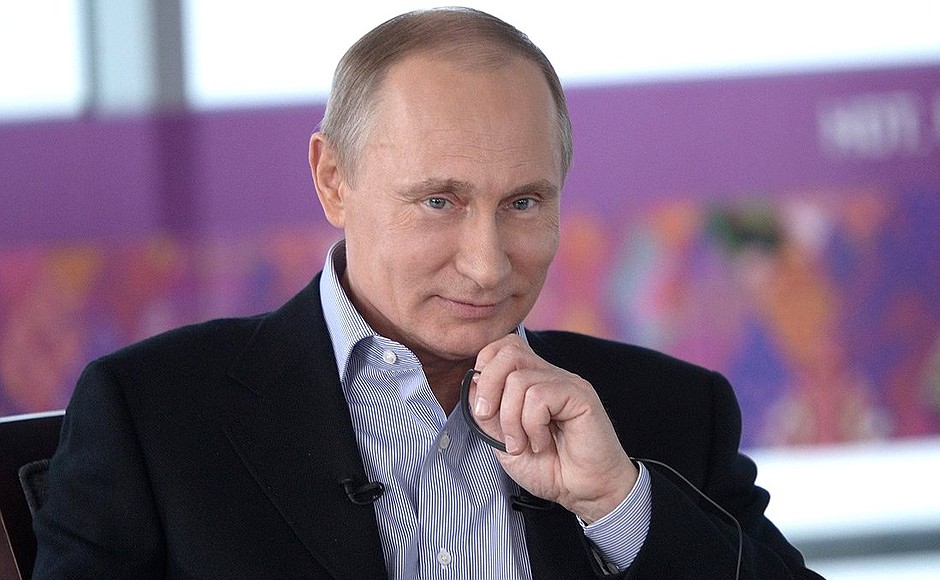by Mark N. Katz
Russia is the one country that has arguably benefited the most from the Trump administration’s insistence that other countries (including America’s Western allies) reduce their petroleum imports from Iran to zero or face U.S. sanctions.
Both during Soviet times and under Putin, Moscow has long sought to drive a wedge between the U.S. and its European allies, thereby weakening the Western alliance. Trump’s actions regarding Iran (as well as other issues) have done just this. Not only do most of America’s allies in Europe and outside the Middle East continue to support the Iranian nuclear accord, but they are angered that Trump is threatening them with sanctions unless they comply with what they regard as Trump’s wrong-headed and illegal withdrawal from an agreement that Iran is continuing to observe.
In addition, although Russia and Iran have cooperated on Syria and other issues, they are both oil exporters and hence are in competition with each other. Moscow, as well as other oil exporters, was unhappy about how the lifting of economic sanctions against Iran by the Iranian nuclear accord resulted in increased Iranian oil exports, which tended to depress oil prices. Nor did Moscow appreciate how the lifting of sanctions against Iran coincided with the increase of sanctions against Russia due to its actions in Ukraine. The Trump administration’s insistence that other countries eliminate oil imports from Iran ameliorates all these problems since it reduces the amount of oil Iran can export, tends to raise oil prices, and makes Russia a more attractive oil supplier to countries complying (even if unwillingly) with Trump’s anti-Iran sanctions. And this, of course, tends to weaken the sanctions regime against Russia.
Further, although it has denied doing so, Moscow is following the lead of Saudi Arabia and the United Arab Emirates by acceding to Trump’s tweet request for OPEC (minus Iran) to increase production in order to keep prices from further rising. This only serves to further ingratiate Putin with Trump—who may not have realized at first that seeking to reduce Iranian oil exports would help to raise gasoline prices that Trump supporters (along with everyone else) must pay in the U.S. And the Trump administration’s view of Putin as “cooperative” will further erode its interest in maintaining economic sanctions against Moscow—as well as dishearten those European countries most worried about the security threat they face from the East.
If Putin on his own had tried to weaken America’s relations with its Western allies, increase Russian oil exports, and improve Russian-American relations all at once, he couldn’t have achieved all three—or perhaps even any—of these goals. But Trump’s actions have advanced all three of Putin’s objectives. Quite an accomplishment!
While some might think otherwise, Trump probably didn’t intend to advance Russian interests by withdrawing from the Iranian nuclear accord and announcing that U.S. sanctions would be imposed on Western allies unless they eliminate their imports from Iran by early November. This, however, has been the unintended consequence of Trump’s focus on weakening Iran. Though unintended, this result should have been foreseen.
In the post-Cold War era, Washington has come to see itself as facing five main adversaries simultaneously: China, Russia, North Korea, Iran, and Sunni Muslim jihadists such as al-Qaeda and the Islamic State. Washington should have learned from its experience during the George W. Bush administration that when it succeeds in weakening one set of adversaries, such as the Taliban and Saddam Hussein, it can strengthen others—most notably Iran in this instance. Similarly, the Trump administration’s focus on the Iranian threat now is serving to strengthen Russia. And Trump administration actions that harm U.S. relations with its Western allies strengthen all of America’s adversaries. But Trump and his inner circle seem utterly oblivious to this. As long as they remain so, Putin will undoubtedly continue to benefit.






Russia opposed Brexit (UK withdrawal from the EU), on grounds it would weaken the EU. Russia’s position was supportive of western unity. One might mention Russia opposed the western military intervention in Libya insofar as it wildly exceeded what was authorized by the UN. The US created chaos in Libya, and this disaster helped to bring about the catastrophe in Syria.
Anyone still thinking that Russia wants any sort of military war with Europe is still drinking the political Kool-aid of the the last 100 years. Please wake up. However, Russia would certainly love to sell their oil and as much as possible to Europe or anyone else that heeds Americas latest warning to stop selling to Iran. The last thing that the peoples of Iran want is war with anyone. As a people far to sophisticated, as a government far to religious zealot controlled. So unlike The Obama debacle of simply giving them BILLIONS of $s the Trump practical approach is to cut off their main source of $s setting the people of Iran off against the government of Iran. Wow this is slam in the face of the old “diplomacy” and a lot cheaper for the American Government. Of course in the short run the cost is shifted to the American people and everyone else force to pay the resulting short term higher cost for petroleum. The long term result will be regime change in Iran with nary a shot fired by our over-extended military of the US empire. We will see…..